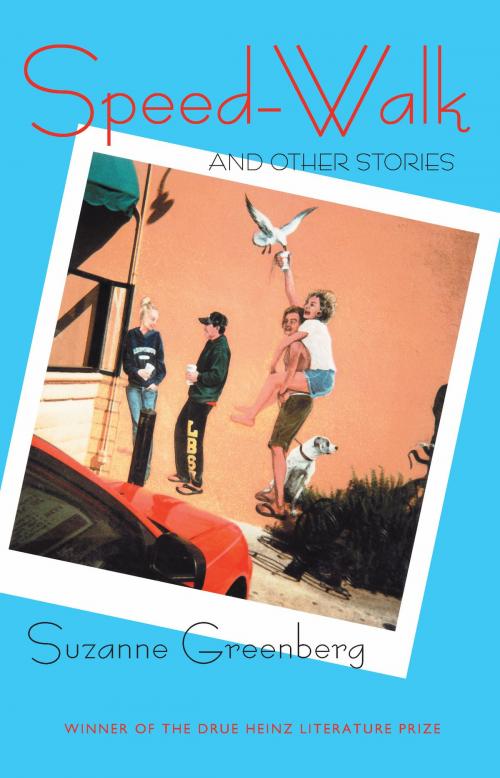| Author: | Suzanne Greenberg | ISBN: | 9780822978787 |
| Publisher: | University of Pittsburgh Press | Publication: | October 26, 2003 |
| Imprint: | University of Pittsburgh Press | Language: | English |
| Author: | Suzanne Greenberg |
| ISBN: | 9780822978787 |
| Publisher: | University of Pittsburgh Press |
| Publication: | October 26, 2003 |
| Imprint: | University of Pittsburgh Press |
| Language: | English |
The characters in Speed-Walk and Other Stories often find themselves dislocated, living in places that do not resemble or feel like home. Their lives have somehow been turned on their axes, and often they cannot comprehend why. The stories in this stunning debut collection are united by their protagonists' common quest to make sense of the world, to bring it into focus, to set it right, to adapt.
In selecting Suzanne Greenberg's fiction for the 2003 Drue Heinz Literature Prize, Rick Moody wrote, “A charge sometimes leveled against contemporary fiction these days is that it has abrogated its responsibility to depict civilization as it actually exists. . . . Speed-Walk replies forcefully to this aesthetic error by locating its protagonists in completely recognizable environments. . . . [They] are ever engaged by the routines of American life: walking the dog, eating at the sushi bar, doing the laundry.” Tightly written yet realistically spare, these stories provide a blueprint for survival when the unexpected is thrust into an ordinary life.
The characters in Speed-Walk and Other Stories often find themselves dislocated, living in places that do not resemble or feel like home. Their lives have somehow been turned on their axes, and often they cannot comprehend why. The stories in this stunning debut collection are united by their protagonists' common quest to make sense of the world, to bring it into focus, to set it right, to adapt.
In selecting Suzanne Greenberg's fiction for the 2003 Drue Heinz Literature Prize, Rick Moody wrote, “A charge sometimes leveled against contemporary fiction these days is that it has abrogated its responsibility to depict civilization as it actually exists. . . . Speed-Walk replies forcefully to this aesthetic error by locating its protagonists in completely recognizable environments. . . . [They] are ever engaged by the routines of American life: walking the dog, eating at the sushi bar, doing the laundry.” Tightly written yet realistically spare, these stories provide a blueprint for survival when the unexpected is thrust into an ordinary life.















